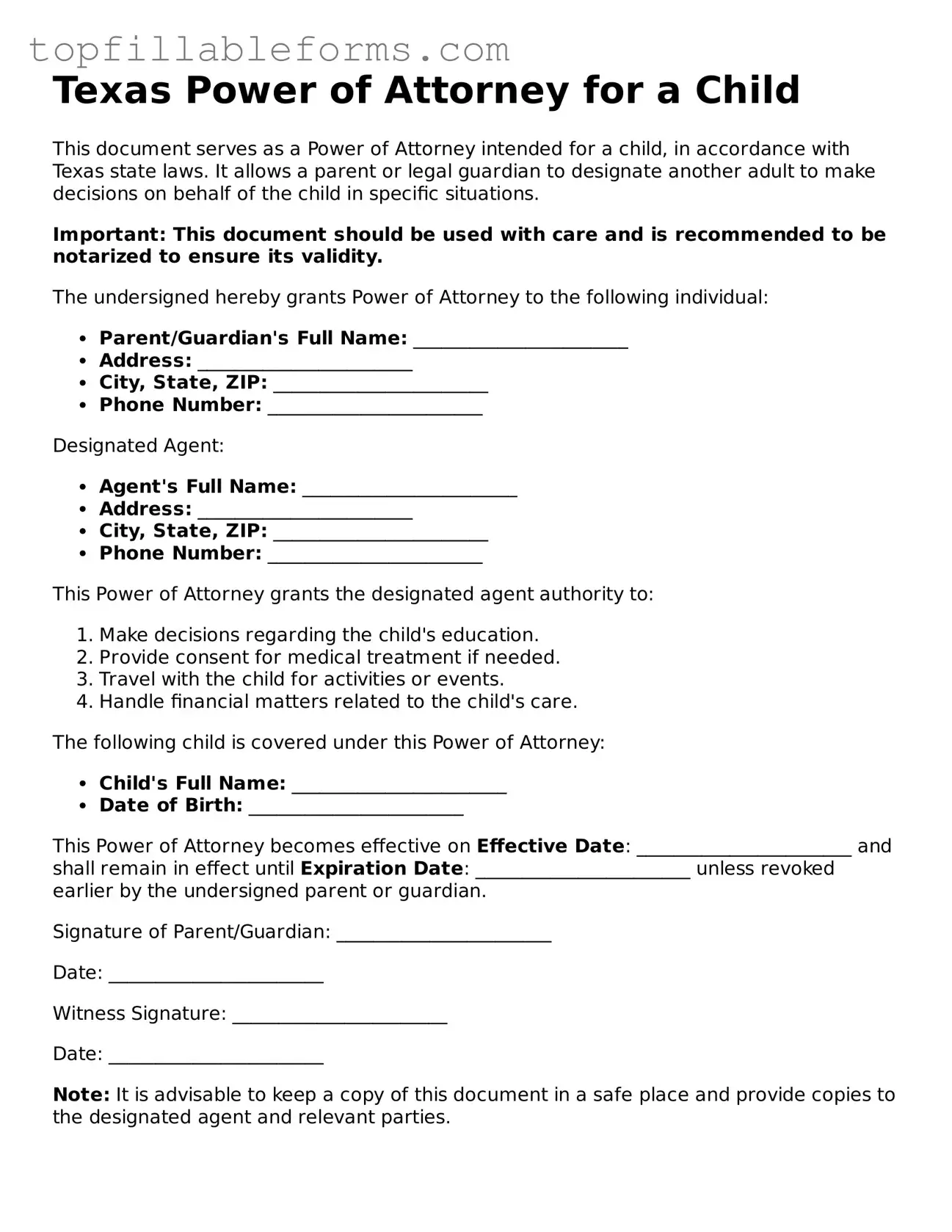Attorney-Verified Power of Attorney for a Child Template for Texas
The Texas Power of Attorney for a Child form allows a parent or legal guardian to grant temporary authority to another adult to make decisions on behalf of their child. This document is essential for situations where the parent cannot be present, such as travel or medical emergencies. By using this form, caregivers can ensure that the child's needs are met promptly and effectively.
Open Power of Attorney for a Child Editor Here

Attorney-Verified Power of Attorney for a Child Template for Texas
Open Power of Attorney for a Child Editor Here
Finish the form now and be done
Finish your Power of Attorney for a Child online by editing, saving, and downloading fast.
Open Power of Attorney for a Child Editor Here
or
▼ PDF File
